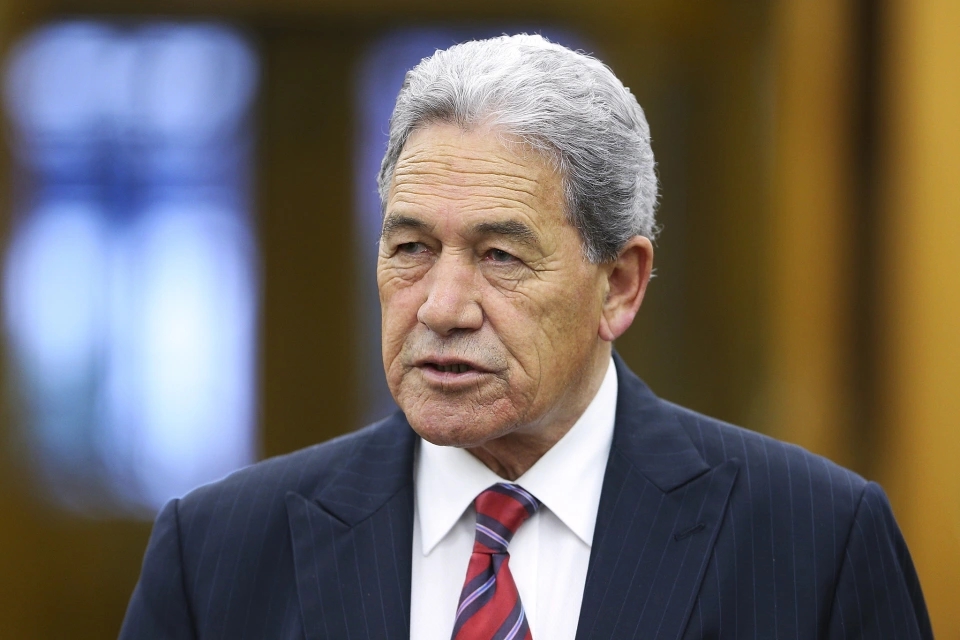By Ling Yunzhi

New Zealand's Foreign Minister Winston Peters
Recently, New Zealand and Australia held their first meeting in the "2+2" format between foreign ministers and defense ministers in Melbourne. Both sides agreed to seek closer defense ties as the New Zealand considered sharing advanced military technologies with the United States and Britain through the so-called AUKUS partnership. This signifies that the discussions regarding New Zealand's inclusion in AUKUS have formally been placed on the agenda.
In recent years, with the increasing strategic importance of the South Pacific region, many countries have started to intensify their competition for influence in the region. New Zealand and Australia, being important countries in the South Pacific region, have begun to expand their multilateral cooperation mechanisms while maintaining closer bilateral relations.
As a core mechanism among the US-led bilateral and multilateral military alliances, AUKUS focuses on the provision of nuclear submarine technology by the US and the UK to Australia, assisting Australia in establishing a nuclear submarine fleet and actively promoting mutual sharing of technology among the three countries to jointly develop long-range strike capabilities.
However, New Zealand has been pursuing a denuclearization policy since the 1980s. It believes that the current AUKUS has seriously undermined the international nuclear non-proliferation mechanism and brought numerous hidden dangers and hazards, such as nuclear submarine arms races and missile technology diffusion. Therefore, it has always maintained a resistant attitude towards AUKUS. But due to changing regional security and domestic political situations, coupled with the continuous efforts made by the US and Australia, the New Zealand government's attitude towards AUKUS is changing, and the discussion on joining AUKUS is also accelerating.
Nonetheless, influenced by the various factors, the prospect of New Zealand's full participation in AUKUS is still unclear. For New Zealand, its nuclear policy is significantly different from those of the US and Australia. New Zealand has been pursuing a denuclearization policy since the 1980s. It was its insistence on an anti-nuclear stance, the refusal to allow visits by warships carrying nuclear weapons from the US, and the enactment of the New Zealand Nuclear Free Zone, Disarmament, and Arms Control Act that led to the breakdown of the alliance system among the three countries.
In terms of current diplomatic strategy of the New Zealand government, there is still no sign that its nuclear policy will change, and the government remains highly alert to the possible risk of nuclear proliferation posed by AUKUS. For example, in the recent "2+2" meeting, New Zealand still reaffirmed its continued support for the denuclearization of the Pacific region and was not prepared to compromise or change its non-nuclear position. It stated that it would only discuss participating in the second pillar of AUKUS, which is limited to cooperation in emerging technologies such as artificial intelligence, quantum technology, hypersonic technology and electronic warfare, without involving nuclear technology. All these factors will significantly constrain New Zealand's full integration into the AUKUS mechanism, which focuses on nuclear submarine construction, in the future.
In recent years, the US has been eager to establish various cliques including the Five Eyes Alliance, the QUAD, and AUKUS to compensate for its declining power shortage. These alliance systems, with obvious confrontational characteristics, have greatly disrupted regional peace and development. As a political and military alliance that reflects the typical Cold War thinking and zero-sum game mindset of the US, the UK and Australia, AUKUS is increasingly demonstrating characteristics of camp and bloc-based confrontation. Currently, it is actively expanding its membership, targeting numerous countries such as Canada, Japan, the ROK and India. The promotion of New Zealand to join AUKUS by the US and Australia is also a crucial measure to implement this model.
From the perspective of future development, if New Zealand joins AUKUS, it will cause a highly unfavorable effect worldwide. This will not only escalate regional arms races and geopolitical confrontations but also undermine peace and stability in the Asia-Pacific region and even globally.













